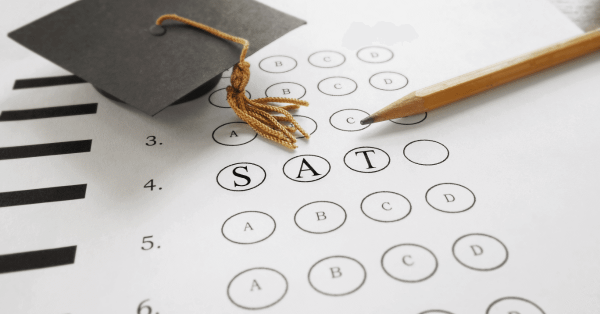The effects of coronavirus are widespread and long-lasting, and many aspects of our daily lives will be impacted in ways we cannot even imagine.
In addition to all those affected health-wise, there are many, like the students and parents who are deeply enmeshed in the college admissions process, whose plans have been turned upside-down.
With millions of kids across the nation at home and unable to go out, what have up to now been integral parts of the college process, AP, SAT, and ACT testing, have all been left with no alternatives but to modify while still attempting to be accessible to students early enough for them to submit scores to colleges.
The landscape of exams will surely change in the long run, but there are still many things to keep in mind for this upcoming year, particularly for rising seniors planning to submit their applications in the fall.
The questions still remain: What will become of the SAT test…and what will become of SAT Subject Tests?
What is the Difference Between the SAT and SAT Subject Tests?
Both the SAT and SAT Subject Tests are created and distributed by The College Board.
While the SAT focuses on testing general skills such as common math, grammar, reading comprehension, and writing, the SAT Subject Tests each specialize in a specific topic.
These tests assess students on advanced topics connected to the subject they choose.
For example, a student who feels confident in their knowledge of chemistry may choose to take the SAT Subject Test in chemistry in addition to the SAT itself, to show colleges they have an advanced grasp of a subject beyond the basics.
This can be especially useful when applying to a program concentrated on that subject.
The Subject Tests are shorter than the regular SAT, with the former being an hour long and the latter lasting 195 minutes.
Because they are shorter, a student can take as many as three Subject Tests on one day.
Generally, according to College Board, “you can take a different test from the one you signed up for — the test booklet contains all Subject Tests available that day, so just take the ones you want. But there are some exceptions.
There is much more flexibility surrounding the SAT Subject Tests.
Unlike the regular SAT, a student can decide to add a test on testing day…just as long as it is being given on that same day.
What Are the SAT Subject Test Dates This Year?
As of now, there are four more testing dates for the SAT Subject Test in 2020.
Due to the cancellation of the March and May exam dates, College Board created an additional testing day in September, but only for the regular SAT.
The registration for the exams has already opened and is on a first come, first served basis which may fill up quickly.
Time is of the essence for the students interested in taking the SAT Subject Tests.
They should determine which ones they want to take and sign up as soon as they can.
You can view the schedule for the rest of the year and beyond here.
Taking Standardized Tests Online
Administering these tests online posed a new challenge for the College Board, and when they held online AP exams in early May, it was obvious they they had not had enough time to work out the kinks.
At that time, a small percentage of students experienced trouble submitting their results.
Problems withstanding, the entire process demonstrated a way in which these types of tests could be conducted online going forward, including the SAT and SAT Subject Tests.
An announcement was made by College Board in April stating that if in-person tests were unable to be conducted in the fall, they will provide a “digital at-home SAT.”
Because of Covid-19 SAT cancelations, we’re planning an additional September SAT and preparing to significantly expand capacity for all fall administrations.
If schools don’t reopen this fall because of Covid-19, we’ll provide a digital at-home SAT. https://t.co/rwH6RpBWmM pic.twitter.com/LVFPAGCzjF
— The College Board (@CollegeBoard) April 16, 2020
It is yet to be seen how or if their other online tests will differ from the ones given for AP courses, but something to take away from the experience in May is that those exams were shortened from their normal 3-plus hours to just 45 minutes total.
The probability of something similar occurring with the SAT or the SAT Subject Tests is high.
Are Subject Tests Required?
Most schools beyond a few top-ranked institutions such as Georgetown and Duke never explicitly required students to submit Subject Tests as part of their applications, however, taking the tests was seen as being highly recommended and helpful in standing out amongst other applicants.
All that has changed due to COVID because the May and June tests were canceled, thus preventing many students from taking them.
These cancellations resulted in an increasing number of schools completely waiving any requirements or recommendations for Subject Tests.
They are now only listed as an optional supplement to the rest of a student’s information.
Are There Benefits to Taking SAT Subject Tests?
As one parent in our Paying For College 101 Facebook group put it:
Great scores can help tell a student’s story. If your student didn’t take the AP US history test, but ends up with a 790/800 on the US History SAT2, it shows they know the subject well.
Occasionally, certain colleges will allow the student to place out of the same class in college.
Be cautious in which ones your student decides to take. Some of the tests like one of the Spanish ones and one of the Math ones have a high number of perfect scores every single year.
If your kid scores a 790/800, that might seem pretty wonderful but it might only put them in the 70th percentile versus other kids who took that same test.
Not going to impress Admissions very much.
How to Study for the SAT Subject Test
Since there haven’t been any announced changes to the formatting of these tests so far, the first thing a student should do is look up how their specific subject test is set up.
Tests can vary in the number of questions, types of questions, or both, but all subject tests are 60 minutes long.
After that, it’s important to look online for a practice test which will help provide a baseline of how much you already know and what you need to improve on.
If you are using a tutor, going over the practice exam with them can be very useful.
Additionally, if you need to learn more information or get more practice tests, there are many high-quality books from Barron’s, Princeton Review, or The College Board themselves that you can purchase.
What Does the Future for SAT and SAT Subject Tests Look Like?
The popularity of these tests has been waning in recent years, and because of this, many colleges have had plans of getting rid of their SAT requirements.
When the exams were canceled for March and May, the two largest months in terms of students taking the exam, colleges used it as an opportunity to lift some of their barriers to applying by removing the demand for standardized testing.
While the exams will certainly remain for the next few years, there is reason to believe its relevance is on the downturn.
The entire University of California system, including schools such as UCLA and UC Berkeley, announced they were completely eliminating their SAT and ACT requirements for at least the next five years.
(Although, certain school in the system, like UCSD, “recommend that you submit scores from 2 SAT Subject Tests closely related to your major. If you are taking a math subject test, Math Level 2 is required. Once again, recommended but not required,” so make sure to check with each school you apply to. )
The complete ramifications of this year on the future of standardized testing are hard to predict, but as the list of test-optional schools gets longer and longer, it’s safe to assume large changes are most certainly on the horizon.
List of SAT Subject Test-Optional Schools
For a full list of schools that no longer require SAT Subject Tests, click here.
CONNECT WITH OTHER PARENTS FIGURING OUT
HOW TO PAY FOR COLLEGE
JOIN OUR FACEBOOK GROUP





